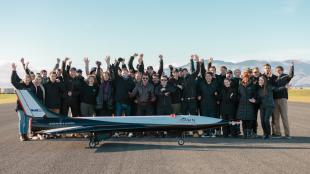'We Just Won Our Seventh National Title!' Concrete Canoe Team Expands Record
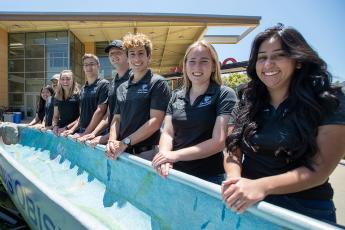
The defending national champion Cal Poly concrete canoe team was the team to beat at the 2023 American Society of Civil Engineers Concrete Canoe Competition at the University of Wisconsin-Platteville on June 10-12 — and their repeat became official at Monday’s awards presentation at the end of the third day of competition.
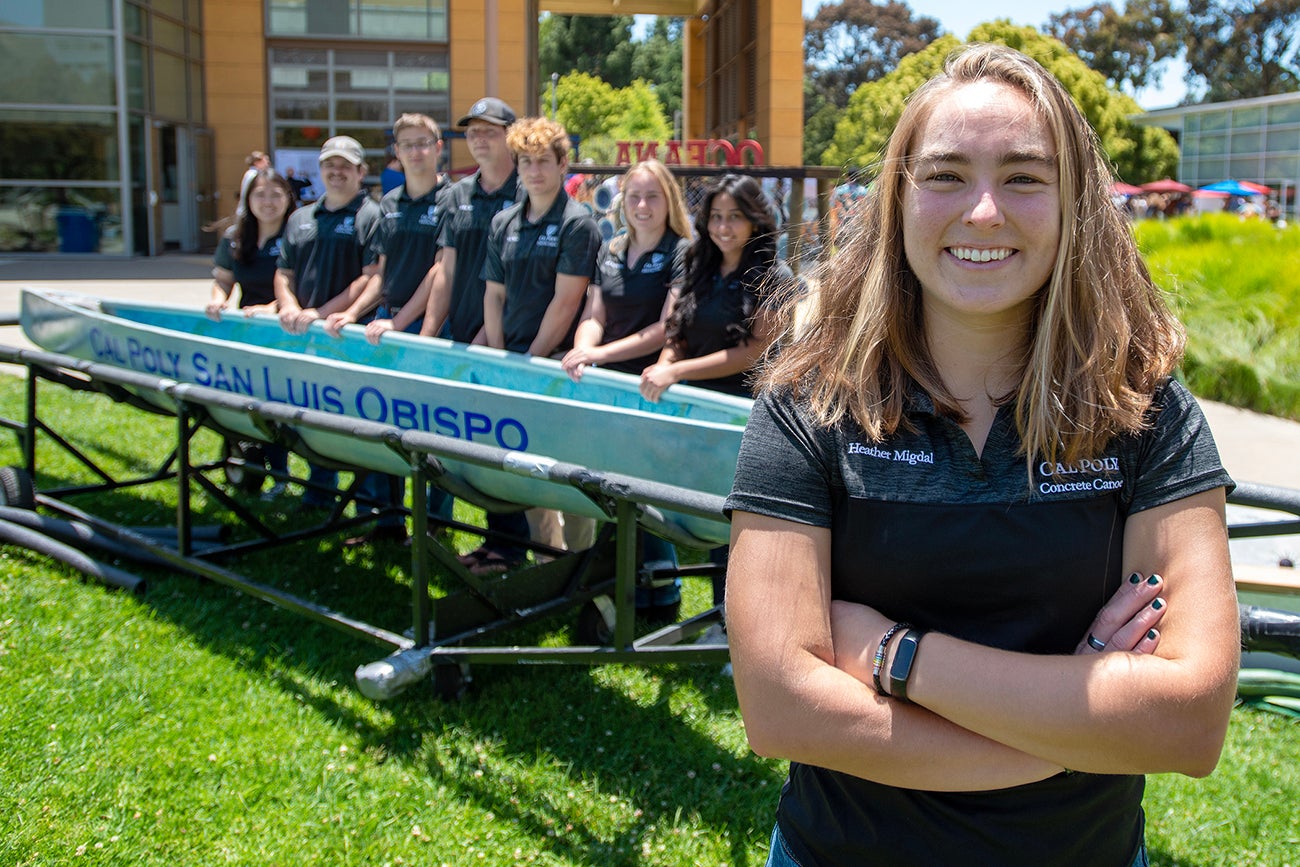
“We just won our seventh national title!” said civil engineering senior Heather Migdal, the team’s project manager and one of four paddlers of Cal Poly’s canoe, Oceana.
Cal Poly was one of 20 university teams from the U.S. and Canada that had advanced to the finals from a series of ASCE regional qualifiers.
It was a dramatic defense of last year’s national victory at Louisiana Tech University, when Cal Poly’s 2022 victory snapped what had been a four-way tie of five titles with UC Berkeley, the University of Alabama in Huntsville and the University of Wisconsin. This year's seventh Cal Poly win adds an exclamation mark to that record.
“This year, we’ve had our fair share of obstacles, but we’ve all come together and put a tremendous amount of work and effort into this,” Migdal said. “The five senior captains were all on the team last year. We all know what is expected, and I’m just beyond excited and happy that we’re able to say, ‘We’re a two-time, national-winning team.’”
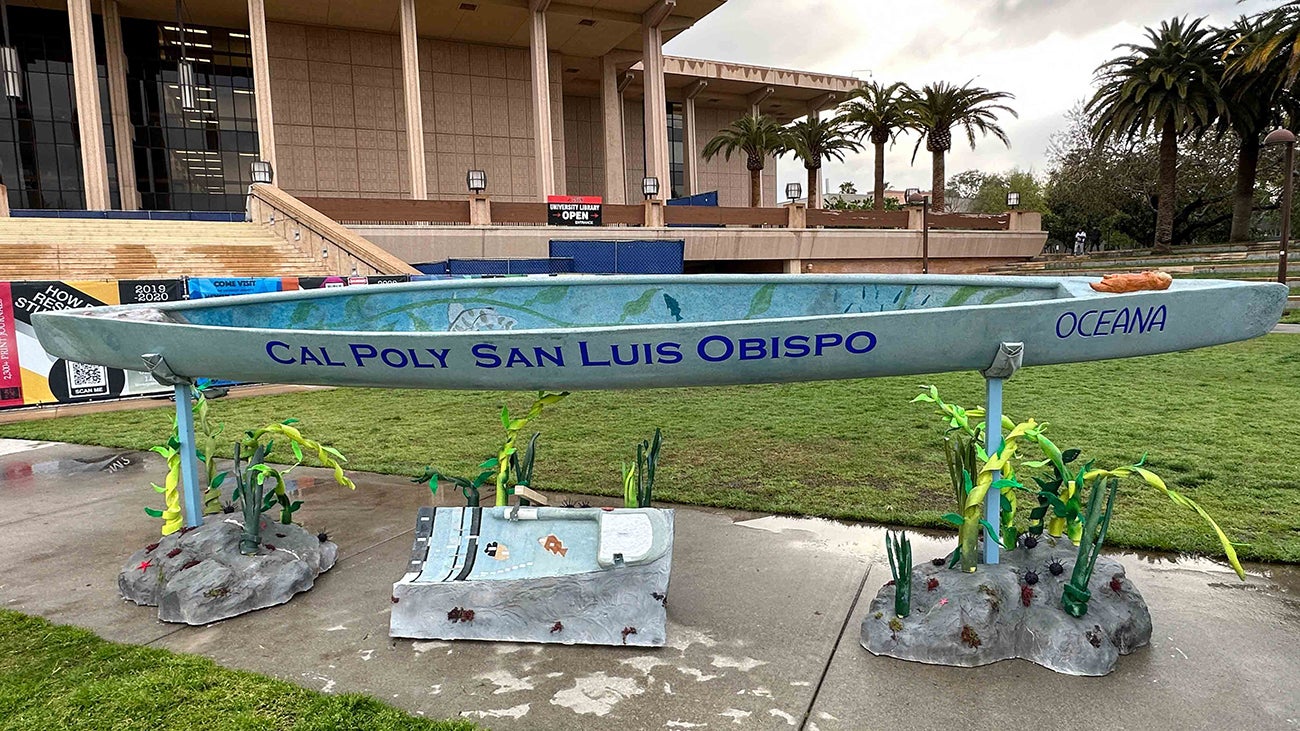
The team secured the overall title by finishing in the top two in each of the 100-point competition’s four sections: oral presentation (30 points); technical proposal (25 points); final product prototype (25 points); and racing (20 points). Cal Poly racked up 55 points with first place finishes in the oral and technical presentations, 22.5 points for second in the product prototype, and second in racing (17.4 points) behind Canada’s Université Laval (18.9 points), which finished fourth overall in the competition.
Youngstown State University ultimately finished second, the University of Florida was third and Western Kentucky University came in fifth.
In addition to Migdal, the Cal Poly team also includes: Clarissa Arredondo of Santa Maria, California; Aiden Buckingham of Bellingham, Washington; Peter Cline of Modesto, California; Adam Loewenherz of Bellevue, Washington; Jonathan Maas of San Luis Obispo; Sarah Sakakihara of Wailuku, (Maui) Hawaii; Sarah Scherzinger of Salinas, California; Nicholas Toma of Alamo, California; and Ryan Trainoir of La Mesa, California. All the team members are civil engineering majors besides Arredondo, who studies environmental engineering.
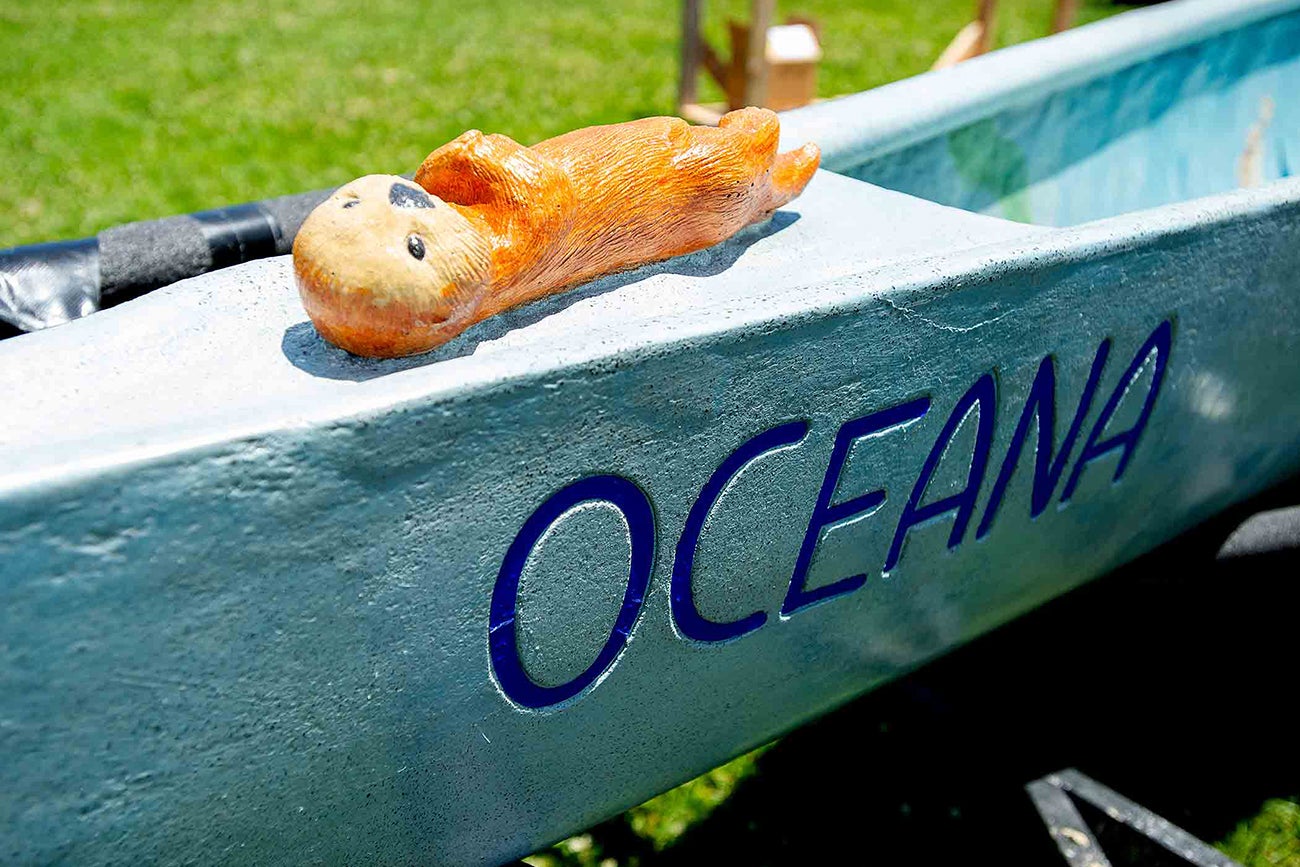
Cal Poly concrete canoes are known for their aesthetic design while being surprisingly light (175 pounds) and strong. Oceana is 18 feet and 8 inches long, with a quarter-inch, carbon fiber and fiberglass reinforced hull.
Since a new ASCE rule change allows the use of concrete dyes, the canoe features ocean flora and fauna all in an artist’s palette of realistic hues. Oceana’s bow deck includes the team mascot, an otter named Ellie.
There were plenty of ups and down for Cal Poly at the competition.
Not happy with an earlier third-place finish in the oral presentation part of the competition at the Pacific Southwest Regionals, Migdal credited some substantial last-minute changes to the team’s script for the win in the finals.
“We were confident that we made the right changes," she said. "When we did the speech portion, we hit all of our marks. It was probably the cleanest time we had ever practiced it.”
For the Q&A portion of the competition, Cal Poly had to sit through more than seven hours of presentations that began at 8 a.m. on Sunday in a concert hall on the host campus.
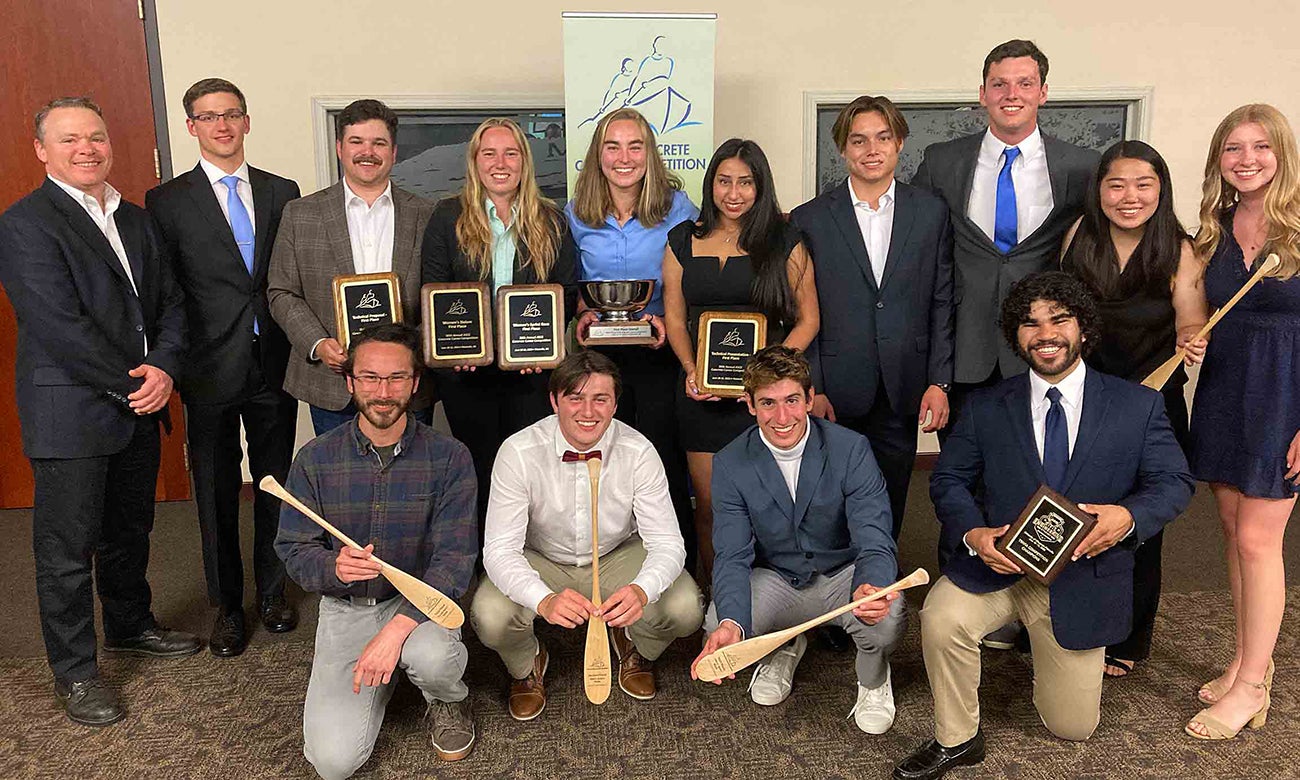
“We were the second-to-last to go on, so that was definitely some added pressure,” said Migdal. “But the round of applause that we got afterwards was just so amazing.”
Conditions were equally challenging out on Blackhawk Lake, a 40-minute drive northeast of the campus, on Monday’s five-event race day.
Despite injuries, Migdal and her slalom and sprint partner Scherzinger took first in the 200-meter sprint and second in the 200-meter slalom. Scherzinger paddled with a shoulder issue. On the men’s side, Cal Poly’s Toma and Buckingham were second in the slalom and third in the sprint. In the four-person sprint race that has four, 100-meter legs with three 180-degree turns, the paddlers battled soreness, fatigue and inclement weather to finish third.
“We just went and gave it absolutely everything we had to finish out that race,” Migdal said. “I’m just so proud of what we were able to finish. That last leg, there was lots of yells to get over the finish line — but we did it right.”
Want more Learn by Doing stories in your life? Sign up for our monthly newsletter, the Cal Poly News Recap!

